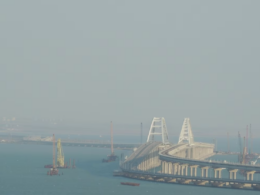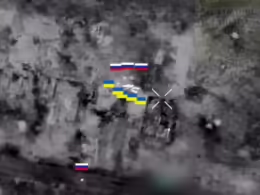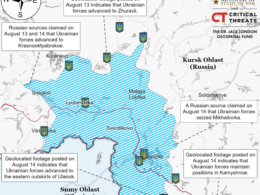- Russian forces continued to target critical Ukrainian civilian infrastructure with air, missile, and drone strikes on October 18.
- Current and former US officials confirmed to the New York Times on October 18 that members of Iran's Islamic Revolutionary Guard Corps (IRGC) are in Russian-occupied Crimea to train Russian forces on how to use the Iranian drones they purchased, thereby enabling likely Russian war crimes.
- Russian President Vladimir Putin’s unequal implementation of partial mobilization is causing social fractures that are driving the Russian information space to further marginalize ethnic minority communities.
- Russian President Vladimir Putin’s unequal implementation of partial mobilization is causing social fractures that are driving the Russian information space to further marginalize ethnic minority communities.
- Belarus continues to provide its territory and airspace to support the Russian invasion of Ukraine but remains highly unlikely to enter the war on Russia’s behalf.
- Russian troops conducted a limited ground attack in northern Kharkiv Oblast on October 18, seemingly suggesting that Russian forces may retain territorial aspirations in Kharkiv Oblast despite massive losses during recent Ukrainian counteroffensives.
Russian occupation transforms Crimea’s demographics with 35% population replacement over ten years, says expert
Russian authorities have orchestrated a massive demographic shift in occupied Crimea, bringing in one million new residents while forcing out native populations through systematic repression. The peninsula has also seen 20,000 residents conscripted into Russian forces since 2022, with hundreds facing conviction for refusing service.



